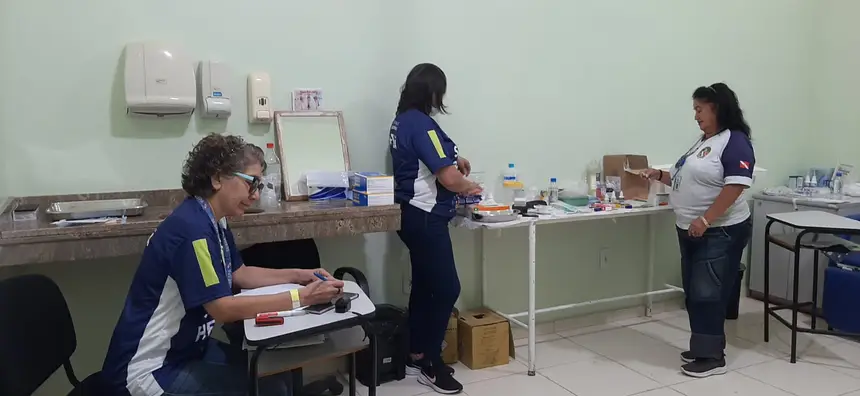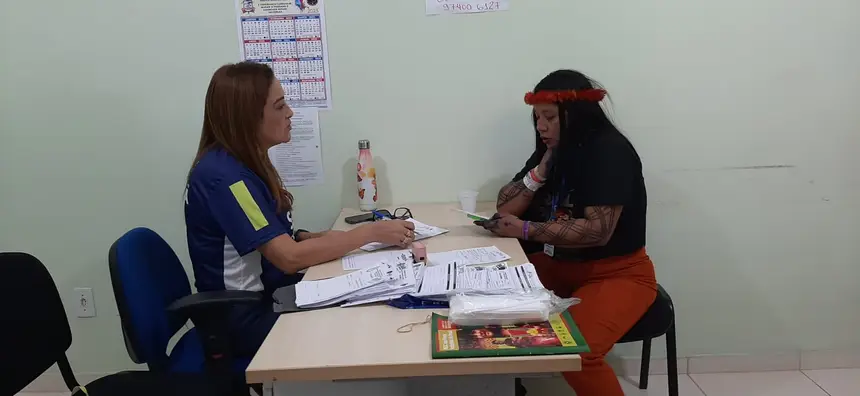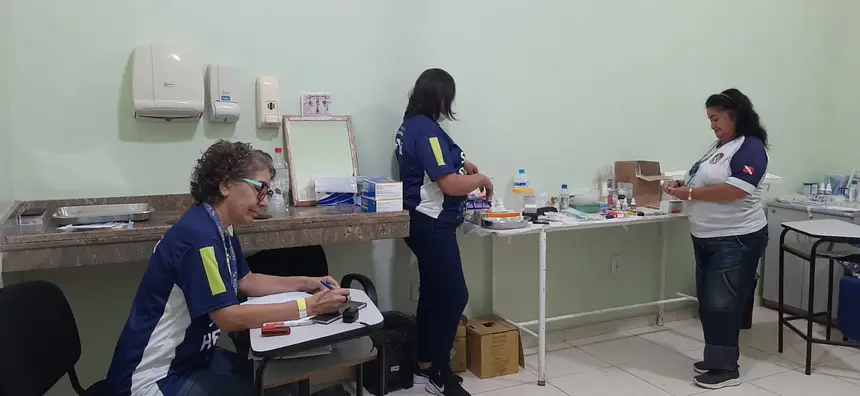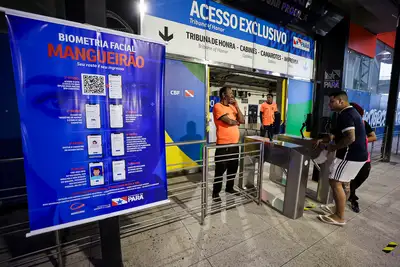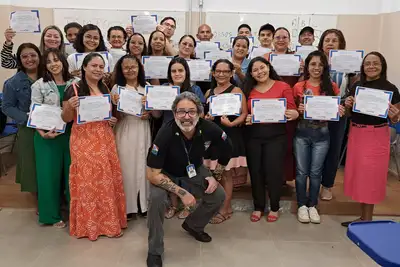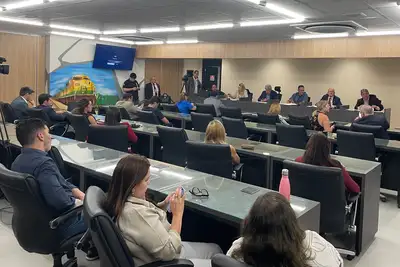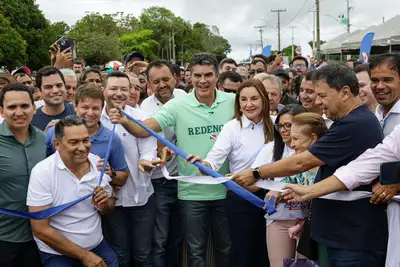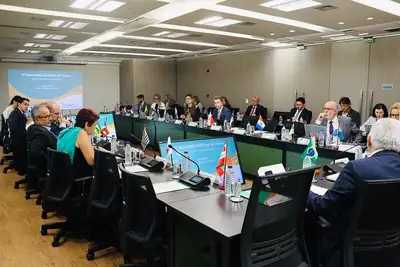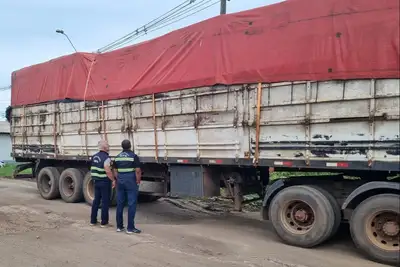Structures set up by Sespa ensure assistance to indigenous and native peoples during COP30
COP Village and the Peoples' Summit offer reception, low-complexity care, and health surveillance actions
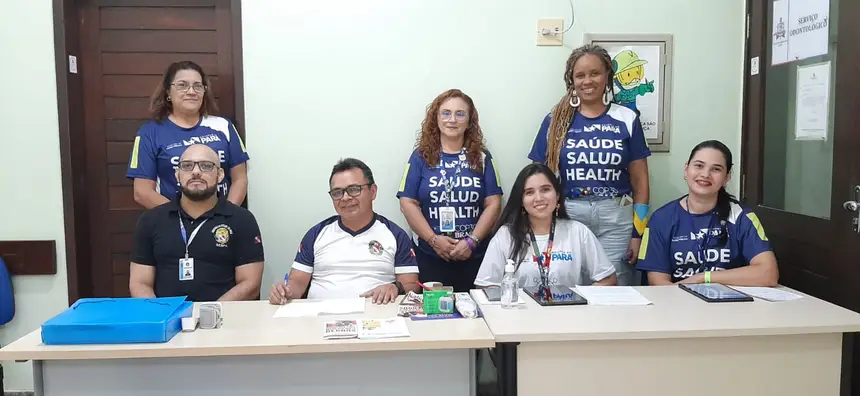
In operation since November 9, the Medical Care Station of the State Department of Public Health of Pará (Sespa), installed in the COP Village, located at the Application School of the Federal University of Pará (formerly NPI), on Avenida Perimetral, has been providing comprehensive support to indigenous peoples during the 30th United Nations Conference on Climate Change (COP30).
The COP Village was created as a space for reception and protagonism for indigenous people from various ethnicities, with facilities for accommodation and the realization of cultural, political, and spiritual activities. The location hosts more than three thousand indigenous people from Brazil and abroad.
Chief Analia Aparecida da Silva, from the Tuxá people of Buritizeiro (MG), praised the structure and care. “It is very important because when we leave our territory, we are not used to the food, flu can arise, in addition to the comorbidities of the elderly, like in my case. Here we can check blood pressure, glucose, and receive medication if necessary. They deserve congratulations,” she stated.
Regilanne Guajajara, from the Guajajara people, highlighted the practicality of the care in the COP Village itself. “This is very important because it prevents us from needing to leave the event. The care is quick and the professionals are very helpful,” she emphasized.
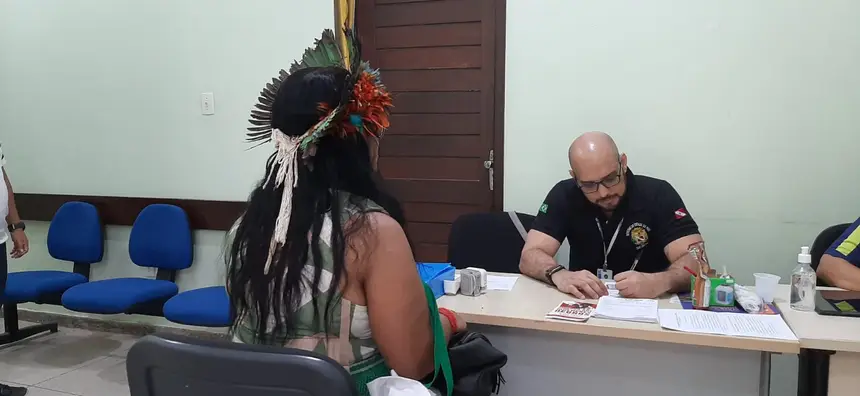
Tatiany Peralta, coordinator of Indigenous Health and Traditional Populations (Sespa/CESIPT), explained that rooms from the former NPI were adapted for medical care and that more than 200 consultations have already been conducted. The station operates 24 hours and has doctors, nurses, nursing technicians, administrative staff, and support from indigenous translators to facilitate communication. An ambulance is available for cases that require transfer.
“All this structure and the flow of care were collectively planned about a year ago. The coordination of indigenous peoples already provides care within the territories, so there is consolidated expertise. We also invested in training professionals, reinforcing respect for the culture and specificity of each ethnicity,” explained the coordinator.
The station offers a medical office, a medication room, malaria testing, and a pharmacy, and will remain operational until November 22. The goal is to provide low-complexity urgent and emergency care to COP30 participants and the general population.
Peoples' Summit
Another care station was set up at the Peoples' Summit, an international articulation space that brings together social movements, indigenous peoples, traditional communities, and popular organizations, parallel to COP30, at the Federal University of Pará (UFPA).
The station operates from 8 AM to 11 PM, at the viewpoint of UFPA, offering the same services as the COP Village, in addition to vaccination and testing for covid-19, dengue, and malaria.
Children's Summit
The Children's Summit also had a station. The event, parallel to the Peoples' Summit at COP 30, brings together children and adolescents to discuss issues such as social and climate justice, aiming to ensure youth protagonism, allowing young people to express their opinions through activities such as discussion circles, workshops, cultural presentations, and the drafting of a letter to be delivered to authorities.
The care structure operates at the Institute of Applied Social Sciences (ICSA-UFPA), from 8 AM to 5 PM, and offers the same services as the COP Village, in addition to having a pediatrician.
According to Marilda Braga, coordinator of the Health for All Pará Program and responsible for organizing health services during this period, all coordination of the care stations was organized with the Technical Chamber of Sespa and the Ministry of Health. “And during this alignment, it was identified that UFPA and the Application School would be the strategic points for these services to occur quickly and safely,” she emphasized.
The Secretary of State for Public Health, Ivete Vaz, emphasizes that Sespa is prepared for care with agility and safety. “We are ensuring low-complexity urgent care for event participants. If necessary, the patient is referred to reference units for specialized care with all necessary support,” she stated.
All care is recorded in an application integrated with the Integrated Center for Joint Health Operations (CIOCS), responsible for real-time monitoring of health actions during COP30.
Text: Suellen Santos / Ascom Sespa



